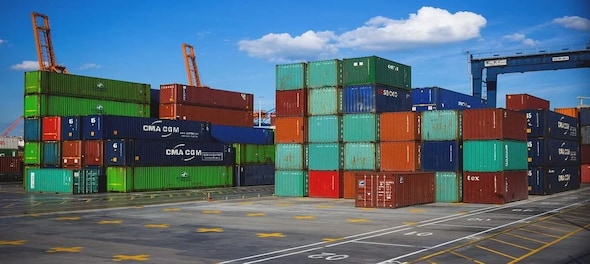
Even as India celebrates its Republic Day today, customs administrations globally celebrate the International Customs Day on 26th January. It is celebrated to commemorate the day when the inaugural session of the Customs Cooperation Council (CCC) was held on January 26, 1953.
Though the idea of celebrating this day came about only in 1983 when the 30th anniversary of the first CCC session was held ceremoniously that year.
In 1994 CCC was renamed the World Customs Organization ( WCO) as it is an independent intergovernmental body with a singular objective of enhancing effectiveness and efficiency of customs administrations. As the WCO website proudly states, the WCO represents 184 Customs administrations across the globe today and it collectively process approximately 98 percent of world trade.
As the global centre of Customs expertise, the WCO is currently the only international organisation with competence in Customs matters and can rightly call itself 'the voice of international Customs community'. Thus it has become a powerful body which ensures uniformity of customs tariff classification and procedures across borders.
The vision of the WCO is to bring Customs together for a safer and a more prosperous world. There is a clear recognition that while ‘borders divide, Customs connects.’ The WCO seeks to ‘develop international standards, foster cooperation and build capacity to facilitate legitimate trade, to secure a fair revenue collection and to protect society, providing leadership, guidance and support to Customs administrations.’ Ambitious goals which the WCO has been doing admirably.
The role of customs is challenging. They are in effect to guard the economic frontiers of the country. They have to ensure that no contraband enters the country. They have to ensure that taxes which are due be paid. With globalisation and consequently trade exponentially increasing , they have to do this without impacting legitimate trade. What the increase in trade has also resulted is contraband being attempted to be smuggled in the guise of legitimate cargo. While tariff barriers have been declining, non-tariff barriers, be it health and safety standards, intellectual property protection, quotas have all been on the increase.
All legitimate trade expects speedy clearance. With transportation facilities on the increase, industries globally prefer to cut down on inventories. Just in time delivery is the mantra of today. What this means is that clearance across borders have to be speedy. Supply chains cannot be impacted since they in turn have a spiral effect on manufacturing. Customs administrations have to necessarily ensure a proper balance is struck between enforcement and facilitation.
The theme of this year’s World Customs Day is ‘ promoting a culture of knowledge-sharing and professional pride in Customs’. This cannot be more appropriate and urgent. Illicit trade has been termed as the crime of the 21st Century. The World Economic Forum estimates illicit markets at $ 2.2 trillion or about 3 percent of the world’s GDP. It is this proceeds which generated from illicit trade which fuels and finance all nefarious activities across the globe threatening the very fabric of global peace and progress. And yet there is little cooperation across enforcement agencies. Petty turf issues continue to dog cooperation.
Lack of trust amongst enforcement agencies is the greatest barrier to more effective action. The tragedy is that there is greater trust, understanding and cooperation across boundaries amongst traffickers. And all this without reams of paper spent on drafting memorandum’s of understanding. Unless and until this barrier is overcome there are going to be challenges in curbing transnational crime.
Indian Customs is a member of the WCO and contributes to the organisation -both financially and having officers posted from the customs administration on secondment to the WCO. In fact, the present Director (Compliance & Facilitation ) in the WCO is Shri P.K.Das the former Chairman of the CBIC.
India has multiple agreements of cooperation with many like-minded customs administrations. The challenge is of confidentiality of data, the need for an offence on which cooperation is being sought having to be an offence in both countries. The Letter Rogatory process is long, time consuming and presents legal challenges.
International Customs Day celebrations take place in India on 27th January in view of 26th being the Republic Day. While it is good and necessary to celebrate such days, the occasion should be used to deliberate, discuss and plug gaps. The effort should be to continue to focus on making the Customs administration a partner of the trade and industry, and to increase cooperation within the country with other enforcement agencies and across borders with other administrations.
—The author, Najib Shah
, is Ex. Chairman, Central Board of Indirect Taxes & Customs. The views expressed are personal.
Read his previous articles here
(Edited by : C H Unnikrishnan)
First Published: Jan 26, 2023 8:33 PM IST
Check out our in-depth Market Coverage, Business News & get real-time Stock Market Updates on CNBC-TV18. Also, Watch our channels CNBC-TV18, CNBC Awaaz and CNBC Bajar Live on-the-go!


BJP is planning to ban RSS, says Shiv Sena (UBT) chief Uddhav Thackeray
May 18, 2024 8:01 PM
Punjab Lok Sabha elections: Complete list of Congress candidates
May 18, 2024 4:08 PM
Punjab Lok Sabha elections: Check full list of AAP candidates and constituencies
May 18, 2024 12:59 PM
PM Modi, Rahul Gandhi election rallies in Delhi today: Here are the routes to avoid
May 18, 2024 11:28 AM

